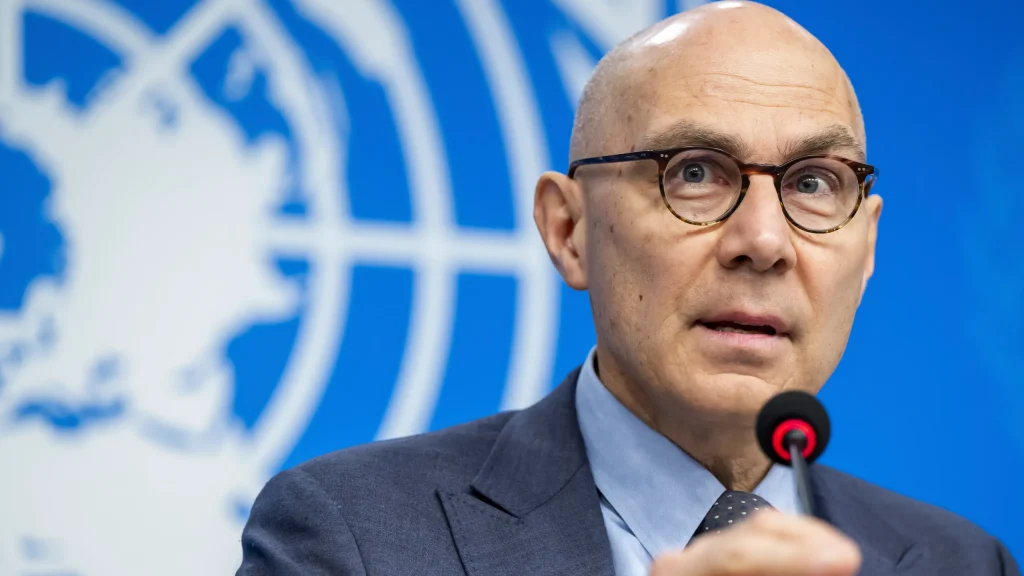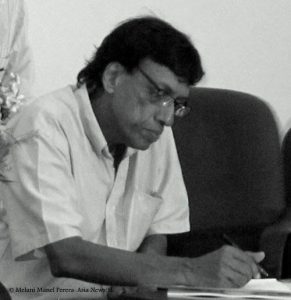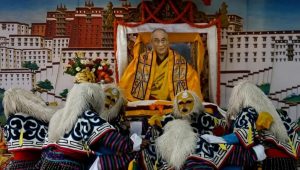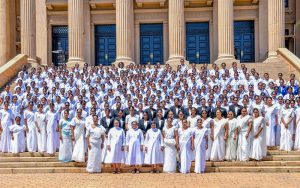National decision-making with International support can deliver lasting results – Dr. Jehan Perera

The government’s openness to the international human rights community as witnessed in its welcome to UN Human Rights High Commissioner Volker Türk, and willingness to receive advice from him, perhaps reflects its sense of confidence in its sincerity of purpose to uplift the country politically economically and in terms of the people’s enjoyment of human rights. The government appears to be living Tagore’s dream: “Where the mind is without fear and the head is held high; Where knowledge is free; Where the world has not been broken up into fragments by narrow domestic walls.” In this context, international support is to be welcomed whether in the form of assistance from the IMF, the UN or individual countries.
The UN High Commissioner’s visit to Sri Lanka took place at a time when the UN and other international proponents of human rights are under siege. The leader of the most powerful country in the world, President Donald Trump, has not only withdrawn his country from the UN Human Rights Council but also recommended the cessation of funding to a number of international organisations including UN ones that deal with human rights and war crimes. President Donald Trump’s office announced a recommendation to terminate US funding for nearly two dozen programmes that conduct war crimes and accountability work globally, including in Sri Lanka.
The lack of a consistent application of international human rights standards has been there ever since those standards came into existence. It is generally the case that there is one set of rules for the rich and powerful and another for the poor and weak. The present time is one in which the international laws and norms are openly breached with impunity. When the world’s most powerful countries violate them there is little or nothing that other countries or institutions can do to stop them. The asymmetry is painfully visible in Gaza and in Ukraine. It is bound to be duplicated in other countries.
In this fraught context, High Commissioner Türk started his Sri Lanka mission with a most uplifting speech. He spelled out a vision of the values the UN stood for and the need to uphold the system of international human rights for the good of the world. In this first of his many public engagements he spoke to an audience of over 300 representatives of government, civil society and foreign embassies and gave a glimpse of a world that is possible. He was also willing to mention that many countries were not doing their part to ensure that the system of international human rights was upheld.
Liberal Ethos
The government was liberal in giving the UN a free hand to organise its high commissioner’s programme without restrictions. His opening public engagement at the state-supported Bandaranaike Memorial International Conference Hall was utilised by the UN to give public voice to young civil society activists who were uniformly critical of the government’s approach to human rights and national reconciliation. They cited a litany of shortcomings of the government and made a call for a direct international role in investigating war crimes despite the government and previous governments having ruled out such a direct international role.
The government also gave the UN a free hand to visit the newly uncovered Chemmani mass grave which was a dark secret for many years. Family members of those who went missing in the war were present as were civil society organisations that lobby on their behalf both nationally and internationally. Forensic archaeologists have exhumed over 30 bodies so far, including those of a woman and infant and a child whose blue schoolbag lay intact. The Office on Missing Persons has already requested DNA matching with data held by the International Committee of the Red Cross, illustrating an inter-institutional cooperation that was not present during earlier excavations in Mannar and Matale.
Addressing the gathering at Chemmani, the High Commissioner pledged to strengthen the role of the UN in supporting the reconciliation process in Sri Lanka by ensuring there would be the pursuit of accountability for war crimes. He also pledged to continue with the Evidence Gathering Mechanism set up in Geneva under UNHRC resolutions. He said this would be to complement and supplement the work done by national mechanisms. He clarified that the mechanism would enable domestically gathered evidence to be transferred to competent foreign courts including a hybrid court in Sri Lanka that the UN is pushing for.
However, there is a measure of scepticism among the people of the north and east whether these pledges about ensuring accountability for war crimes will materialize. They are aware, as are people in other parts of the world, about the prevalence of impunity in places like Gaza and Ukraine where massacres of civilians take place on a regular basis with little being done by either the UN or by other leading countries to stop it and bring war criminals to justice. Despite these contradictions, Sri Lanka appears to be open to going forward on accountability with international support in regard to dealing with the past.
National Ownership
Sri Lanka will be well supported to deal with its past. There are many other countries that have gone through similar experiences of protracted internal warfare and human rights violations. There is a great deal of international experience and expertise to be drawn on. The international community can advise and give its expertise but the decisions need to be taken by Sri Lankans. Any international assistance must strengthen national capacity and be based on the unique country context, a principle known as “nationally led, internationally supported.”
It is important that the government takes on only what it feels confident it can politically take on. Scholars of transitional justice warn against the belief that legal process alone can deliver closure regardless of political will. Comparative scholarship warns that when accountability is driven primarily from abroad, it can trigger nationalist push back that ultimately weakens reform. In the peace process in Colombia international advisers sit on technical committees but Colombians write the judgments. This arrangement has survived several changes of government precisely because it is rooted in domestic law.
The international community can advise and give its expertise but the decisions need to be taken by Sri Lankans. The internationally reputed peace scholar, John Paul Lederach calls this the “elicitive” approach: outsiders facilitate a conversation whose answers emerge from local moral vocabularies rather than imported scripts. Empirical studies reinforce his views. Peace settlements crafted with strong civil society participation, especially by women, are 35 percent more likely to endure fifteen years, because the very constituencies that must defend the deal had a hand in shaping it.
With the UN Human Rights Council set to decide on whether or not to come up with a new resolution on Sri Lanka in September this year, the government has a narrow window to ensure that Tagore’s words come true: “Where words come out from the depth of truth; Where tireless striving stretches its arms toward perfection; Where the clear stream of reason has not lost its way into the dreary desert sand of dead habit”. By providing political leadership to a national dialogue on reconciliation which includes both the opposition and civil society, the government can convert external pressure into internal momentum and draw up a consensual settlement that will be long lasting beyond the reach of partisan party politics.
 – Dr. Jehan Perera
– Dr. Jehan Perera






